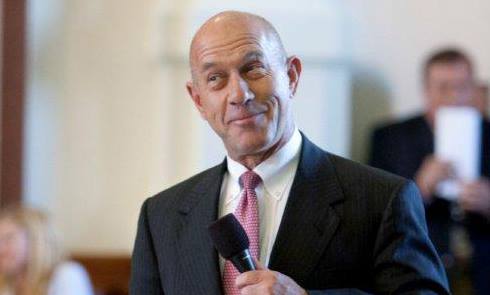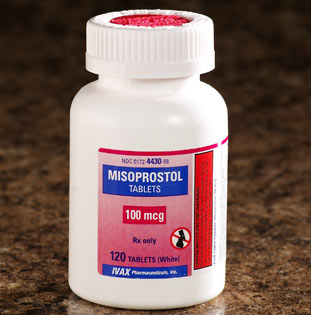
Sen. John Whitmire
State Sen. John Whitmire formally launched his campaign for Houston mayor Tuesday evening with a fundraiser at the ritzy Post Oak Hotel, attended by dozens of the city’s political luminaries — including the hotel’s billionaire owner, Tilman Fertitta, and several other Republican mega-donors who are opening their checkbooks for Whitmire, a moderate Democrat.
With almost a year to go until next year’s Nov. 7 election, Whitmire outlined his platform and kickstarted his campaign at Tuesday’s fundraiser. The host committee is filled with prominent lobbyists, business groups, labor unions, former elected officials and a mix of donors to both political parties.
Whitmire said his campaign is motivated by his desire to solve a variety of problems that he has personally witnessed in Houston including homelessness, illegal dumping, rising crime and inefficient city services.
Among them, public safety is a driving issue for the candidate. Besides supporting law enforcement officers, he said he would also take a holistic approach to improving the criminal justice system including offering more resources to the court system and the crime lab.
“I’m not going to get into squabbles with other elected officials about what the numbers are, but the bottom line is we have a crime issue in Houston, Harris County,” he said at the fundraiser. “We are not New York or Chicago. We fix our problems.”
Whitmire said he is expecting resistance from people who do not want to see the changes that he is advocating for, including a more transparent government than how the city is currently operating.
“There are people who like the status quo. There’s people that like the city is operating because they are profiting real well. They know if I’m mayor, it’s going to be very transparent, honest and play no favors,” he said. “I want you to tell the firemen and the policemen that help is on the way. I want you to tell Houstonians that help is on the way.”
[…]
Whitmire, the longest-serving member of the Texas Senate, already has $9.5 million in his state campaign account, according to his most recent filing. He has built up his war chest over a decades-long career in the Legislature dating back to 1972, when he was elected to the state House while a senior at the University of Houston. He has served in the upper chamber since 1982.
It is not yet clear how much of the $9.5 million Whitmire can transfer to his mayoral campaign, though he is expected to start the race with a massive financial advantage over the rest of the field. Hollins reported a $1.1 million haul during the first five months of his campaign, while Edwards took in about $789,000 in a shorter span. Kaplan raised $800,000 and pitched in another $100,000 of his own money.
Nancy Sims, a longtime political consultant who now teaches political science at the University of Houston, said she had “never seen such hardcore fundraising this high and this early” in a Houston mayor’s race.
“This is going to be one very expensive mayoral campaign,” Sims said.
Boosting Whitmire’s mayoral bid are a number of donors who helped bankroll the recent campaign of Republican Alexandra del Moral Mealer, who came within two percentage points of unseating Harris County Judge Lina Hidalgo in this month’s midterm election.
Mealer donors serving on the host committee for Tuesday’s fundraiser include Fertitta, Gallery Furniture owner Jim “Mattress Mack” McIngvale, real estate developer Richard Weekley, Fidelis Realty Partners CEO Alan Hassenflu and Houston beer distributor John Nau, among others.
Also on the host committee are several former Republican elected officials, including former state representative Dan Huberty, former city councilmember Greg Travis and two of Whitmire’s former Senate colleagues: Todd Staples, who also served as agriculture commissioner, and Kevin Eltife.
A number of Democrats, including former state representative and city councilmember Ellen Cohen and former Harris County Democratic Party chair Lane Lewis, also are on the host committee.
[…]
In the Senate, Whitmire is best known for his work on criminal justice issues, having long served as chair of the Criminal Justice Committee, even under Republican leadership.
Though his record generally aligns with those of his Democratic colleagues on other issues, Whitmire has broken with his party on a number of votes related to criminal justice. He is a longtime ally of Houston and Harris County’s police union groups, which also are on the host committee for his kickoff fundraiser.
Last year, Whitmire voted for a GOP-backed bail bill that limits the opportunity for defendants to be released on no-cost personal bonds and gives judges more information about a defendant’s criminal history when setting bail.
He also voted to amend the Texas Constitution to expand the charges under which judges could deny bail outright, extending the list to include certain violent and sexual crimes. The measure died after nearly every Democrat in the House voted against it, denying the two-thirds support needed to pass.
Whitmire’s criminal justice stances are expected to bolster his position among Republican voters and donors, including those who supported Mealer in a county judge race that focused heavily on violent crime rates in Harris County.
His views on criminal justice, and his support from GOP-aligned donors, have attracted some early backlash from Democrats, including Hollins, who noted last month on Twitter that Whitmire had not endorsed Hidalgo in the county judge’s race.
There’s a lot here and I don’t want to get too much into it right now because it’s going to be a long campaign and where candidates start out is not always indicative of where they end up. Going into a race like this, where more than one candidate is going to be broadly acceptable to me, I usually take a moment to see how I react to the campaign launches, as in what are the themes they chose to emphasize, who do I know that is or is not already on board with them, that sort of thing. See what the vibes are and how I feel about that. Let’s put a pin in that for now and come back to it after Hollins and Edwards have launched.
Wait, what? Does the name “George P. Bush” mean anything to you, Tilman? This is so at odds with the facts of the matter that I’m surprised the story didn’t include a paragraph explaining the way the Land Commissioner went about distributing the federal funds and how they overtly favored smaller, more rural, definitely more Republican, areas over Houston and Harris County. Also, isn’t Mayor Turner a longtime friend and ally of Sen. Whitmire? It’s a little weird to see such a potshot being launched like that, especially at a campaign kickoff. I don’t even know what to make of it.
Anyway. This is where the 2023 Mayor’s race starts out. It will be long and loud and expensive and we’ll all be ready for it to be over in a few months’ time. What are your vibes about this going in?










/cloudfront-us-east-2.images.arcpublishing.com/reuters/5KHWYF53XBNEFLDIU4B47BZYQE.jpg)








